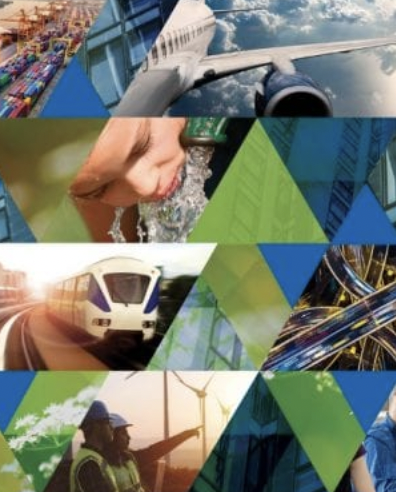 What’s next for environmental activists once the fog clears on the Infrastructure Investment and Jobs Act (factsheet) and Build Back Better Act (framework)? The $1.2 trillion Infrastructure measure that passed includes $550 billion in new spending, encompassing more than “classic” investments in hard infrastructure for the environment. It also calls for bike lanes, wildfire mitigation and dam removal. President Joe Biden and Congressional allies are also working on the larger BBB, which is projected to combat climate change in multiple ways. Taken together, they appear to be a two-prong effort to stoke productivity and remake the economy.
What’s next for environmental activists once the fog clears on the Infrastructure Investment and Jobs Act (factsheet) and Build Back Better Act (framework)? The $1.2 trillion Infrastructure measure that passed includes $550 billion in new spending, encompassing more than “classic” investments in hard infrastructure for the environment. It also calls for bike lanes, wildfire mitigation and dam removal. President Joe Biden and Congressional allies are also working on the larger BBB, which is projected to combat climate change in multiple ways. Taken together, they appear to be a two-prong effort to stoke productivity and remake the economy.
Whatever green policies and projects get cut from these bills, appropriations will be the major focus in 2022 until the Midterm election season winds up and when, historically, Congress winds down and substantive legislative work grinds to a halt.
Still, there are opportunities on at least a couple of fronts.
Several big chunks of green policy will no longer be on the docket for appropriators to wrangle over. With so many long-sought elements included in the two big bills, new space may open for other priorities, or those left out of the big bills.
Lots of eyes will be on the Water Resources Development Act, which is due for reauthorization during 2022 (CRS Primer). Particularly its flood mitigation elements, and how to make those greener.
Those interested in agriculture will be looking at the climate policy in the Farm Bill, which expires in 2023, and angling to start those discussions.
Many will also be looking at the results and strategies flowing from last month’s United Nations Climate Change Conference (COP26).
In the second half of 2022, environmental voters will need to mobilize for the Midterm elections, underscoring the political cost of voting against the environment, climate justice, and climate change.
Clearly UUs will have a chance next year to sharpen our engagement on legislative and electoral accountability.
Earth Month (April) 2022 will bring opportunities to coordinate on education, witness and advocacy. Heading into the November elections will provide a chance to test the capability and capacity developed during the presidential election.
We are indeed living in exciting times. Perilous for our communities, our nation, our species, our planet, if we fail to adequately respond to the climate crisis. Hopefully, we can set the Infrastructure and BBB as cornerstones for a better, wiser, more responsible approach.

